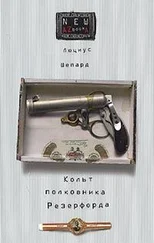Such was the efficacy of the city’s machines that even the natural beauty of the moonlit jungle had been enhanced. It seemed to the arcevoalo that he was passing through an intricate design of silver and black, figured by the glowing eyes of those creatures who had come forth from hiding to honor his return. Despite his wounds, his panic, he had a sense of homecoming, of peacefulness and dominion. He came at length to a mountaintop east of Sangue do Lume and paused there to catch his breath. His muscles urged him onward, but his thoughts—heavy with the poisons of murder and betrayal—were a sickly ballast holding him in place. At any second, ships would arrow up from the city to track him, and he thought now that he would welcome them.
But as he stood there, grieving and empty of hope, a shadow obscured the stars: a great rippling field of shadow that swooped down and wrapped him in its filmy, almost weightless folds. He felt himself lifted and borne eastward and—after what could have been no more than a matter of seconds—gently lowered to earth. Through the dim opacity of the folds, he made out a high canopy of leaves and branches, silvery shafts of moonlight, and a bed of ferns. He could feel the creature merging with him, its folds becoming fibrous, gradually thickening to a husk, and—recalling the darkness that had passed from him at birth— he realized that this incomprehensible shadow was the death that had been born with him, had haunted all his nights, and had come at last to define the shape of his life.
The world dwindled to a dark green vibration, and with half his soul he yearned toward the pleasures of the city, toward love, toward all the sweet futilities of the human condition. But with the other half he exulted in the knowledge that his purpose had been achieved, that he had understood the nature of man. And (a final intuition) he knew that someday, long after he had decayed into a clay of old memories, just as it had with the bones of Joao Merin Nascimento, the jungle would breed from his bones a new creature, who—guided by his understanding— would make of love a weapon and of war a passion, and would bring inspired tactics to the eternal game. This knowledge gave him a measure of happiness, but that was soon eroded by his fear of what lay—or did not lie—ahead.
Something nudged the outside of the thickening husk. The arcevoalo peered out, straining to see, and spied the ruby eyes of a malgaton peering in at him, come to give him the comfort of dreams. Grateful, not wanting to feel the snip of death’s black scissors, he concentrated on those strange pupils, watching them shift and dissolve and grow spidery, and then it was as if he were running again, running in the joyful way he had before he had reached Sangue do Lume, running in a harmony of green light and birds, in a wind that sang like a harp on fire, in a moment that seemed to last forever and lead beyond to other lives.
This little gook cadre with a pitted complexion drove me through the heart of Saigon—I couldn’t relate to it as Ho Chi Minh City—and checked me into the Hotel Heroes of Tet, a place that must have been quietly elegant and very French back in the days when philosophy was discussed over Cointreau rather than practiced in the streets, but now was filled with cheap production-line furniture and tinted photographs of Uncle Ho. Glaring at me, the cadre suggested I would be advised to keep to my room until I left for Cam Le; to annoy him I strolled into the bar, where a couple of Americans—reporters, their table laden with notebooks and tape cassettes—were drinking shots from a bottle of George Dickel. “How’s it goin?” I said, ambling over. “Name’s Tom Puleo. I’m doin’ a piece on Stoner for Esquire.”
The bigger of them—chubby, red-faced guy about my age, maybe thirty-five, thirty-six—returned a fishy stare; but the younger one, who was thin and tanned and weaselly handsome, perked up and said, “Hey, you’re the guy was in Stoner’s outfit, right?” I admitted it, and the chubby guy changed his attitude. He put on a welcome-to-the-lodge smile, stuck out a hand, and introduced himself as Ed Fierman, Chicago Sun-Times. His pal, he said, was Ken Witcover, CNN.
They tried to draw me out about Stoner, but I told them maybe later, that I wanted to unwind from the airplane ride, and we proceeded to do damage to the whiskey. By the time we’d sucked down three drinks, Fierman and I were into some heavy reminiscence. Turned out he had covered the war during my tour and knew my old top. Witcover was cherry in Vietnam, so he just tried to look wise and to laugh in the right spots. It got pretty drunk at that table. A security cadre—fortyish, cadaverous gook in yellow fatigues—sat nearby, cocking an ear toward us, and we pretended to be engaged in subversive activity, whispering and drawing maps on napkins. But it was Stoner who was really on all our minds, and Fierman—the drunkest of us—finally broached the subject, saying, “A machine that traps ghosts! It’s just like the gooks to come up with something that goddamn worthless!”
Witcover shushed him, glancing nervously at the security cadre, but Fierman was beyond caution. “They coulda done humanity a service,” he said, chuckling. “Turned alla Russians into women or something. But, nah! The gooks get behind worthlessness. They may claim to be Marxists, but at heart they still wanna be inscrutable.”
“So,” said Witcover to me, ignoring Fierman, “when you gonna fill us in on Stoner?”
I didn’t care much for Witcover. It wasn’t anything personal; I simply wasn’t fond of his breed: compulsively neat (pencils lined up, name inscribed on every possession), edgy, on the make. I disliked him the way some people dislike yappy little dogs. But I couldn’t argue with his desire to change the subject. “He was a good soldier,” I said.
Fierman let out a mulish guffaw. “Now that,” he said, “that’s what I call in-depth analysis.”
Witcover snickered.
“Tell you the truth”—I scowled at him, freighting my words with malice—“I hated the son of a bitch. He had this young-professor air, this way of lookin’ at you as if you were an interestin’ specimen. And he came across pure phony. Y’know, the kind who’s always talkin’ like a black dude, sayin’ ‘right on’ and shit, and sayin’ it all wrong.”
“Doesn’t seem much reason for hating him,” said Witcover, and by his injured tone, I judged I had touched a nerve. Most likely he had once entertained soul-brother pretensions.
“Maybe not. Maybe if I’d met him back home, I’d have passed him off as a creep and gone about my business. But in combat situations, you don’t have the energy to maintain that sort of neutrality. It’s easier to hate. And anyway, Stoner could be a genuine pain in the ass.”
“How’s that?” Fierman asked, getting interested.
“It was never anything unforgivable; he just never let up with it. Like one time a bunch of us were in this guy Gurney’s hooch, and he was tellin’ ’bout this badass he’d known in Detroit. The cops had been chasin’ this guy across the rooftops, and he’d missed a jump. Fell seven floors and emptied his gun at the cops on the way down. Reaction was typical. Guys sayin’ ‘Wow’ and tryin’ to think of a story to top it. But Stoner he nods sagely and says, ‘Yeah, there’s a lot of that goin’ around.’ As if this was a syndrome to which he’s devoted years of study. But you knew he didn’t have a clue, that he was too upscale to have met anybody like Gurney’s badass.” I had a slug of whiskey. “‘There’s a lot of that goin’ around’ was a totally inept comment. All it did was to bring everyone down from a nice buzz and make us aware of the shithole where we lived.”
Читать дальше






